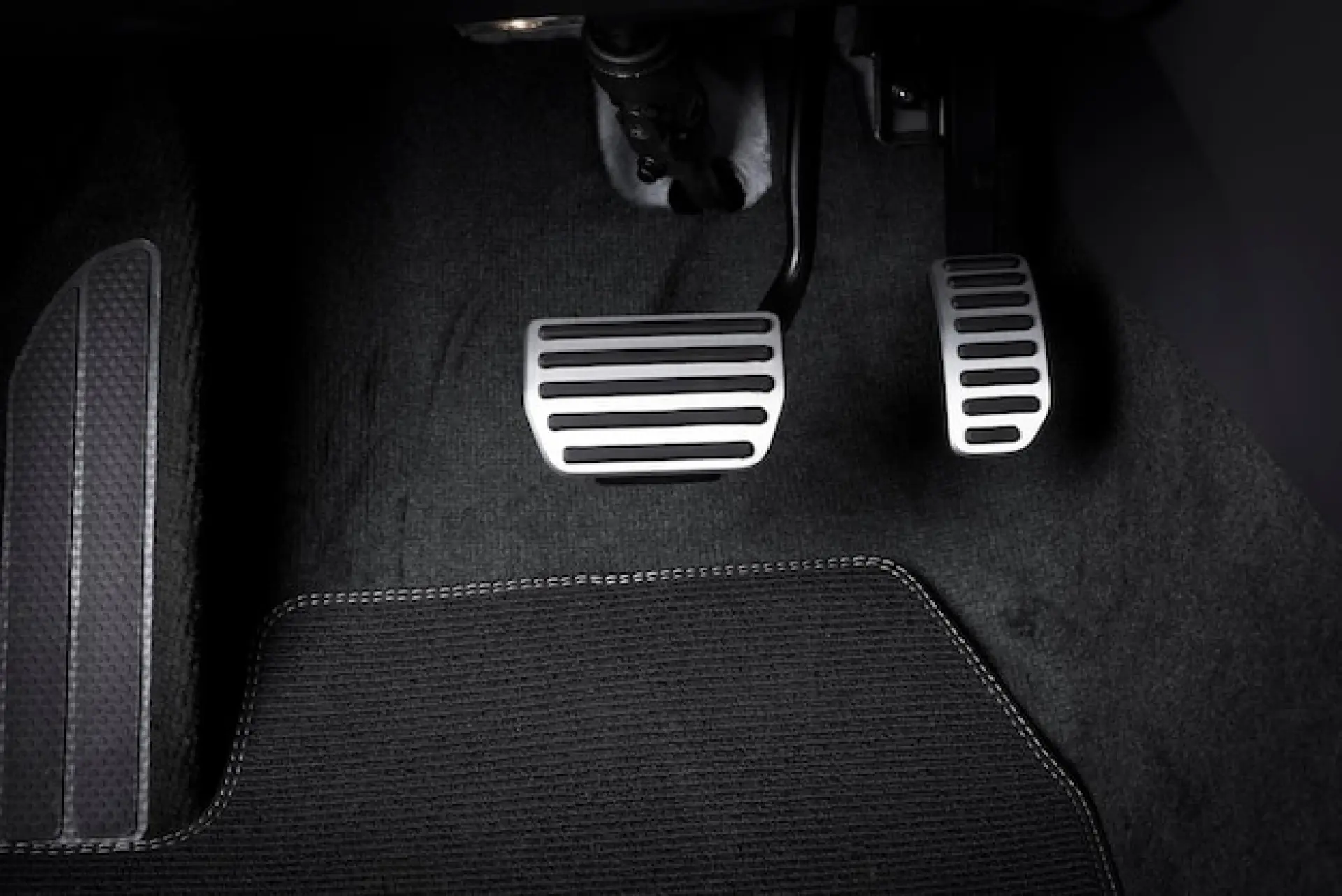Have you been asking: am I eligible to become an driving instructor? Explore the qualifications and steps needed to turn your passion for driving into a rewarding career. Whether you're a seasoned driver or a road enthusiast, discover the requirements to become a certified driving instructor.
Am I Eligible To Become An Instructor?
Embarking on a career as a driving instructor in the UK is a rewarding and multifaceted process. However, it is paramount to acknowledge the specific criteria that you must fulfil before you can begin this journey. You may wonder, "How can I become a driving instructor in the UK?" Firstly, you should be at least 21 years old to be eligible to train as a driving instructor.
Secondly, it is requisite that you possess a full UK or European Union/European Economic Area driving license. This license must have been operational for a minimum of four out of the prior six years before initiating your application to become an Approved Driving Instructor (ADI).
A significant step in the ADI registration process revolves around the Disclosure and Barring Service (DBS) check. It is obligatory for any individual desiring to become a driving instructor to successfully pass this examination. The purpose of the DBS check is to ascertain and verify that the applicant is of good character - a prerequisite that is particularly significant given the close, one-on-one nature of the job.
This aspect is even more crucial as it frequently involves instructing young learners. Becoming a driving instructor is certainly a worthwhile career choice, requiring commitment and determination. Meeting these eligibility criteria represents the first step on this exciting journey.

Choosing A Suitable Car
Choosing the right vehicle can hugely impact your effectiveness as a driving instructor. There are two key elements to bear in mind when making this decision: the vehicle's manoeuvrability and its fuel efficiency. A vehicle that's easy to manoeuvre can significantly boost your students' learning experience. A smooth, responsive vehicle can make the learning process less intimidating and more enjoyable for your students.
Additionally, it can make your job as an instructor easier and more efficient, as it will be easier to teach and demonstrate driving techniques and manoeuvres in a vehicle with responsive steering and handling. Fuel efficiency is another vital factor to take into account.
As a driving instructor, you'll be spending a lot of time on the road, covering extensive distances on a daily basis. Therefore, owning a vehicle that offers superior fuel efficiency can bring down your operational costs considerably. Less fuel consumption means fewer trips to the petrol station, saving you both time and money. Many driving instructors opt for small hatchbacks because they often tick both these boxes.
They are known for their easy handling and superior fuel economy, which makes them an excellent choice for driving instruction. In addition, their compact size makes parking and manoeuvring through tight spaces less challenging for learner drivers.
However, while these factors are important, it's essential not to forget your own comfort and convenience. The car you choose should not only suit your professional needs but also accommodate your personal requirements. Remember, you'll be spending a lot of time in this vehicle, so it should be comfortable and enjoyable for you to drive too.
What Tests Do I Need To Pass To Become An Instructor?
In order to join the respected group of UK driving instructors as an approved instructor, it is necessary for you to get through several tests including parts 1, 2, and 3. Part 1 refers to a theory test that checks your advanced and comprehensive understanding of vital road safety principles, encapsulating the highway code, safe driving methods and instructional techniques.
This is a test of your foundational knowledge and perception of essential driving principles to ensure your safety, as well as that of your future students.
The next test, Part 2 is geared towards your driving aptitude, with the eye test forming a key component of this rigorous procedure. Much like the standard driving test, the practical driving part of this test also includes an elevated requirement to pass, reflecting the high standards held for approved driving instructors.
The final test, Part 3, focuses on your teaching ability - whether you have the requisite skills to guide, instruct and teach another person to drive competently and securely. It is gauged on your capacity to impart the information and skills you have efficiently.
Clearing all these tests conclusively determines your capability to become a part of the esteemed community of UK driving instructors. Mastering all parts is a testament to your comprehensive driving knowledge, refined driving abilities, and superior instructional skills.

Tests To Become An Instructor

Dual Controls
Does My Car Need Dual Controls?
Training to become a driving instructor is about a lot more than just learning the rules of the road. One fundamental part of this process involves making sure your teaching vehicle is safe and fit for purpose. A critical feature of many teaching vehicles is the inclusion of dual controls.
Often viewed as a basic necessity in the realm of driving lessons, a dual-control car provides not only an important safety feature but also an assurance for instructors. This is particularly true when dealing with beginners who are just starting to navigate the complexities of driving. The presence of a second set of controls grants instructors the ability to act quickly and decisively if a learner makes an incorrect move or finds themselves in a potentially hazardous situation.
While utilising a dual-control car isn't a legal requirement in the UK, it's widely considered to be a crucial element of delivering safe, effective, and stress-free driving lessons. Its importance cannot be understated when it comes to providing a safer learning environment. Ultimately, a dual-control vehicle can add an additional level of safety and control that can significantly enhance the learning experience for new drivers.
Should I Work For A Driving School Or Be Independent?
After successfully obtaining your Approved Driving Instructor (ADI) certification, the next step is making one of the most vital decisions: to operate independently or to link up with a reputable driving school and make the most of your newfound teaching abilities. Choosing the latter, particularly if you are a newcomer in the driving instruction industry, comes replete with a multitude of benefits.
One such significant advantage is gaining access to consistent work opportunities, as these schools tend to have a steady influx of clients. This conveniently bypasses the necessity of independently scouting for your clientele, thus allowing more time and energy to be dedicated to conducting high-quality lessons which offer the greatest value to your pupils.
Partnering up with a driving school provides the added perk of being part of a well-structured setup often involving set working hours, established lesson fees, and a comprehensive support system for instructors. This arrangement, favoured by many ADIs, brings about a sense of security and professionalism in conducting one's services.
On the flip side, opting to work independently as a driving instructor has its assets; the opportunity allows for more flexibility in how you schedule your hours and manage your workload. If you display a knack for creating and managing a robust client base, the financial rewards may potentially be more substantial. Being your own boss can align well with those who value independence, and is especially rewarding for those who possess strong leadership qualities and entrepreneurial skills.
Nonetheless, being independent doesn't come without its hurdles such as having to form and manage your own business strategy, market your services, and nurture relationships with clients. This might bring additional challenges when compared with working within an established structure. Regardless of your chosen path, it's essential to cultivate managerial and entrepreneurial skills.
The decision between operating independently or joining a driving school largely depends on your individual circumstances and professional aims. Both options have their unique perks and your choice should resonate with your career aspirations and work-life balance needs.
The key is to reflect and make a discerning decision that best suits your personal and professional objectives. By doing so, you can ensure that your career as an ADI is as fulfilling and rewarding as possible, regardless of the path you choose.
With our dual control systems, you'll have the confidence to teach new drivers, knowing you can intervene instantly when necessary. Invest in your students' safety and your peace of mind.






